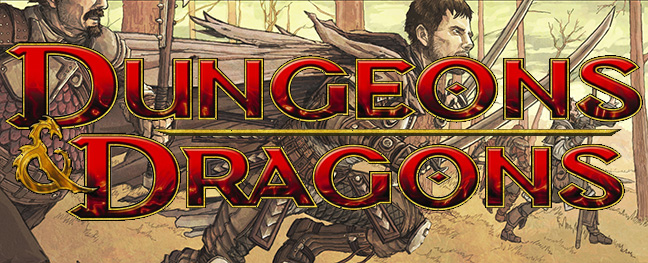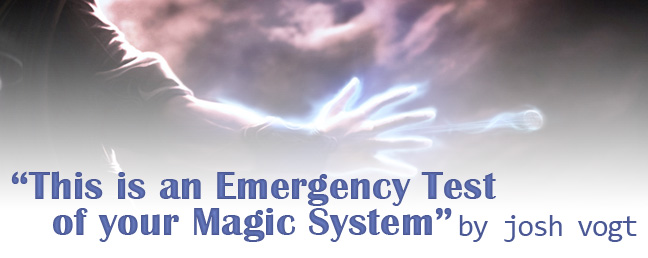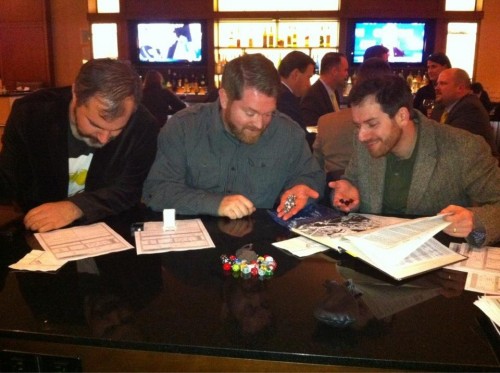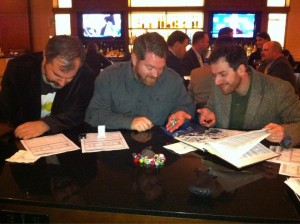
Art by Brent Woodside
Ever wanted to play Dungeons and Dragons against some of Fantasy’s best (and coolest) authors? Of course you do. Last year, thanks to Justin Landon, we were privy to a documented game of D&D featuring Patrick Rothfuss, Peter V. Brett, Joe Abercrombie, Scott Lynch, Elizabeth Bear and a whole bunch of other awesome people. The saliva lost by drooling Fantasy fans was enough to fill the Dead Sea (and just as salty). You can read Brent Weeks’ account of the game right here on A Dribble of Ink, in fact. Now, this time around, you (yes, you), have an opportunity to take part in the next D&D game, alongside many of these same authors, including Patrick Rothfuss and Peter V. Brett, and newcomers like Sam Sykes. How? By auction. Read More »




